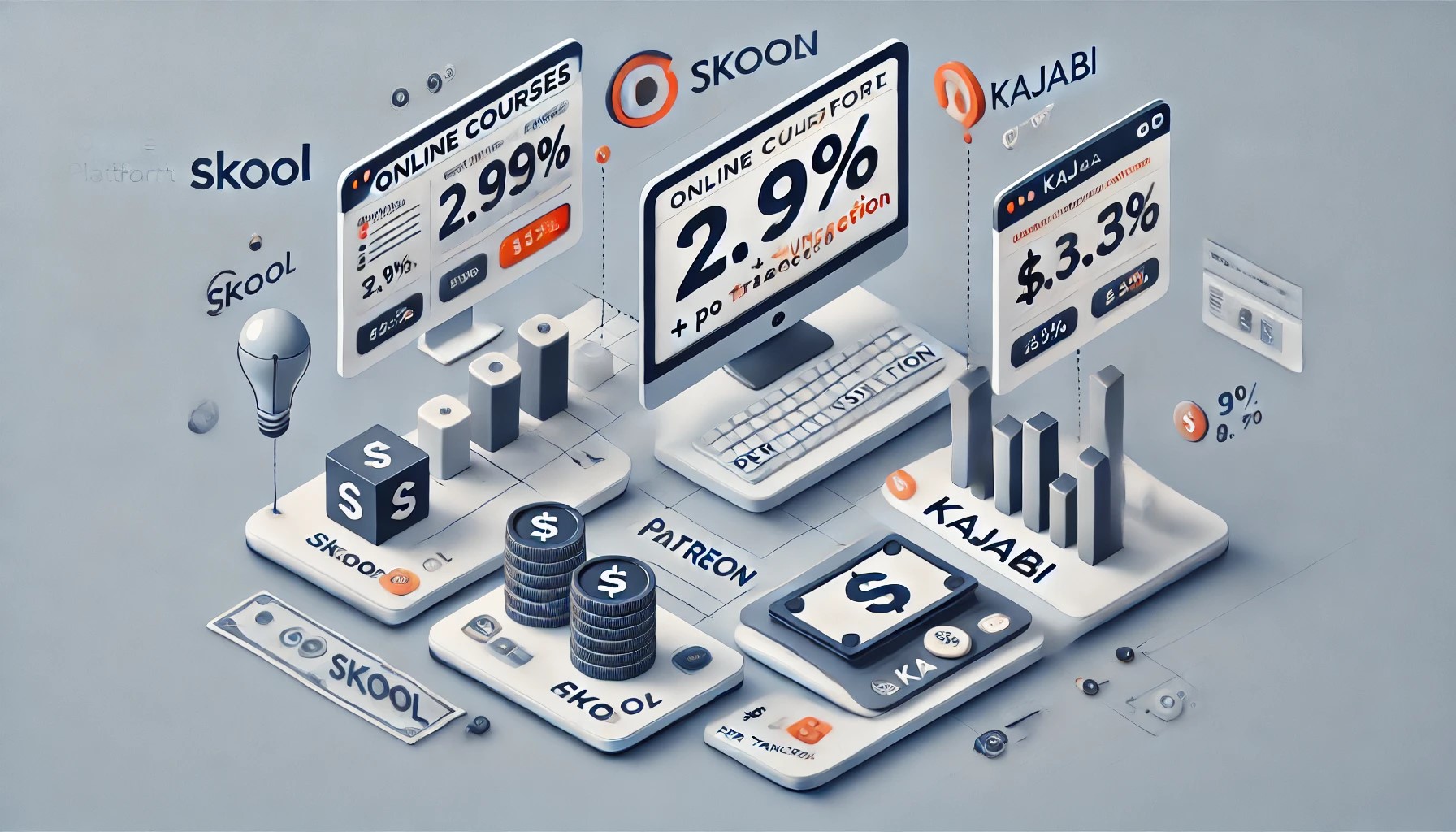
Is Skool the Right Platform for You?
So, you’ve been hearing the buzz about Skool, and now you’re wondering, “How much commission does Skool take?” Whether you’re a course creator, community builder, or just curious, understanding the financial side of Skool is key. Let’s dive in and break it all down so you can decide if Skool is the right fit for your needs.
Skool’s Pricing Model Explained
First things first: Skool isn’t free, but it’s pretty straightforward. You’re looking at a $99 per month subscription fee. This fee covers all the essentials you need to build and manage your community, host unlimited courses, and welcome as many members as you can gather. There are no hidden costs lurking around the corner—just one simple monthly charge that gives you access to all of Skool’s features.
Understanding Skool’s Commission Fees
Now, onto the big question: how much commission does Skool take? The answer is a flat 2.9% + $0.30 per transaction. Every time someone in your community makes a payment, whether it’s for a course or a membership, Skool takes this small slice.
Compared to other platforms, this fee is pretty competitive. For example, Patreon charges between 5% and 12%, and Kajabi takes 4.9% of each transaction (Skool) (Freedom Bound Business). So, if you’re thinking about maximizing your earnings, Skool’s lower commission could be a big plus.
Platform | Commission Rate |
|---|---|
Skool | 2.9% + $0.30 per transaction |
Patreon | 2.9% + $0.30 per transaction |
Kajabi | 4.9% per transaction |
The Real Cost of Using Skool
Let’s crunch some numbers. Imagine you’re charging $50 per month for membership to your Skool community, and you’ve got 100 members. That’s $5,000 in revenue each month. With Skool’s 2.9% + $0.30 fee, you’re looking at around $175 in transaction fees.
Add in the $99 subscription, and your total cost is $274 per month. So, your take-home earnings after Skool’s fees would be $4,726 (Freedom Bound Business). Not too shabby, right?
Additional Benefits and Hidden Costs
But wait, there’s more! Skool also handles VAT and sales tax compliance for you. That means you don’t have to worry about the complexities of international taxes—Skool takes care of it. This can be a real time-saver, especially if you have members from all over the globe (Entrepreneur Nut).
Plus, Skool has an affiliate program that lets you earn 40% commissions by referring others to the platform. This can help offset your costs or even bring in some extra cash if you’ve got a following (Skool).
Related post that answers an important question: is Skool a MLM?
Who Should Consider Skool?
So, who’s Skool really for? If you’re a content creator looking to build a tight-knit community or an educator wanting to host courses without drowning in fees, Skool might be your golden ticket. The low transaction fees are ideal for those who plan to scale, and the platform’s simplicity makes it easy to focus on your content rather than getting bogged down in technical details.
On the flip side, if you’re just starting out and unsure about generating consistent revenue, the $99 monthly fee might feel like a lot. But if you’re confident in your ability to grow your community, Skool’s pricing could be a smart investment.
Conclusion
In the end, how much commission does Skool take? A modest 2.9% + $0.30 per transaction. With a clear pricing structure, competitive fees, and a host of features designed to make your life easier, Skool offers a lot of value for those ready to dive in.
So, is Skool worth it? If you’re looking for a platform that’s straightforward, cost-effective, and packed with features, Skool might just be the perfect fit. Give it a try with their 14-day free trial and see if it’s the right home for your community.
Ever wonder "Is Skool owned by Alex Hormozi?"